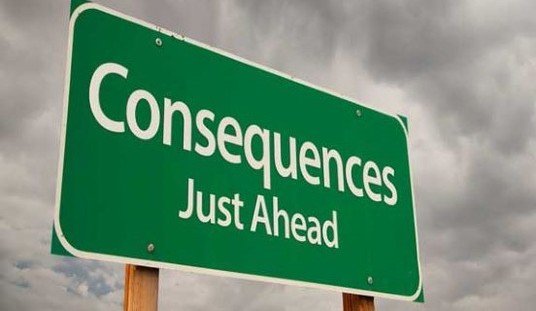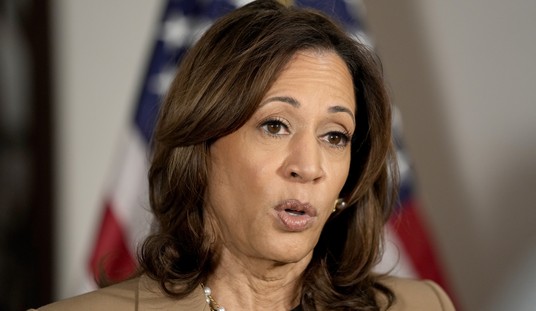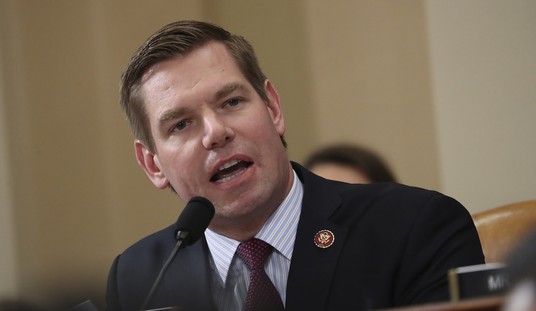As a state representative in Florida, Marco Rubio co-sponsored a DREAM Act bill. As Speaker of the Florida House of Representatives, he blocked six separate immigration-enforcement bills:
These six enforcement bills included denying public benefits to illegal aliens, denying public jobs to illegal aliens, and a memorandum of understanding between local law enforcement and federal law enforcement to remove criminal aliens.
When he launched his campaign for U.S. Senate in 2009, however, Rubio was singing a very different tune:
The immigration issue came up and Charlie Crist said he supported amnesty. When Rubio saw the reaction of citizens to Crist’s support of amnesty, he knew all he had to do to seal the deal was take an anti-amnesty stand and he would be the next senator from Florida. After all, being anti-amnesty had worked for his predecessor, Senator Mel Martinez, who ran on an anti-amnesty platform, then went on to join Senator McCain in drafting the 2007 amnesty bill. The similarities between Martinez’s actions and Rubio has earned Rubio the nickname “Little Mel.”
Once this new campaign strategy was formulated, it had to be implemented. First order of business would be to convince voters that he was now a pro enforcement candidate. Rubio began courting the Tea Party groups and a meeting was arranged by Shark Tank Blogger Javier Manjarres with the leaders of Floridians for Immigration Enforcement. This group had been instrumental in promoting the six pro-enforcement bills and had put the word out about Rubio blocking the bills.
Attending that hour-long meeting were [Floridians for Immigration Enforcement’s] VP David Caulkett, FLIMEN’s Legislative Director Jack Oliver, FLIMEN Board Member John Parsons, Tea Party of Fort Lauderdale Leader, Danita Kilcullen, and a concerned local activist. At that meeting, Rubio listened to our concerns, and then assured us that he would oppose any form of legalization. This included the Dream Act and Amnesty. Candidate Rubio also pledged to support E-Verify.
Recommended
That was then. Flash forward four years to 2013. His team was telling anyone and everyone that the Gang of Eight immigration reform bill — a bill that Rubio co-sponsored — would ensure “the toughest enforcement and border security law in American history.” Here’s Cesar Conda, Rubio’s chief of staff, touting the bill early last year:
If enacted, Senate #immigrationreform will be the toughest enforcement and border security law in American history.
— CesarConda (@CesarConda) April 11, 2013
Rubio continued to claim that he opposed amnesty despite the fact that the Gang of Eight bill would grant legalization to millions of illegal aliens before any border security measures were implemented. Twitchy repeatedly called out Rubio and his staff for their blatant dishonesty:
- Marco Rubio to promote fake border-security amendments to Gang of Eight bill
- Marco Rubio’s chief of staff bloviates about immigration ‘enforcement triggers’
- More Gang of Eight fakery: ‘You’ll have to wait more than 10 years’
- Sen. Marco Rubio supports border fence, votes against building border fence
- Marco Rubio spokesman says Border Commission is the real deal; Conn Carroll calls BS
Then, on Spanish-language television, Rubio acknowledged with surprising candor that the Gang of Eight bill would allow legalization before border security was in place:
Let’s be clear. Nobody is talking about preventing the legalization. The legalization is going to happen. That means the following will happen: First comes the legalization. Then come the measures to secure the border. And then comes the process of permanent residence. Rubio, responding to the concern that legalization might be delayed and therefore be subjected to the policies of future administrations: Let’s be clear. Nobody is talking about preventing the legalization. The legalization is going to happen. That means the following will happen: First comes the legalization. Then come the measures to secure the border. And then comes the process of permanent residence. What we’re talking about here is the system of permanent residence. As for the legalization, the enormous majority of my colleagues have accepted that it has to happen and that it has to begin at the same time we begin the measures for [the border]. It is not conditional. The legalization is not conditional. [Emphasis added.]
Asked to clarify those remarks by Fox News host and talk radio giant Sean Hannity, Rubio conceded that he probably should have been “more artful” in his use of terms.
By “more artful” we think he meant “less honest.”
Now Rubio is changing his colors again. Per Byron York of the Examiner:
Where the Gang of Eight provided for the immediate legalization of the 11 million immigrants in the country illegally, Rubio’s new approach would insist that border security and internal enforcement be passed and implemented — put in place, not just contemplated — before Congress considered legalization. Only by establishing new security measures first can lawmakers win the trust of a skeptical public, Rubio argued.
…
Rubio foresees “modernizing our legal immigration system towards one that is merit-based and works for the country.” Only then, after new security measures and the legal reforms were both up and running, would Rubio advocate beginning a legalization process for the 11 million. “Once that’s in place, and people see that it is working and is actually being applied,” Rubio explained, “then I think people would be willing to have a serious and responsible conversation about how to address the millions of people who are here illegally, who have been here for a long period of time. But they’re not willing to do that until they know that the illegal immigration problem is under control.”
Rubio conceded that such assurances were simply not possible in a comprehensive bill, like the Gang of Eight, that included legalization from the get-go…
[Emphasis added.]
So Rubio now admits that the amnesty plan his own chief of staff once described as “the toughest enforcement and border security law in American history” actually “included legalization from the get-go.”
Will amnesty opponents forgive and forget? Don’t hold your breath:
Rubio's main reason asking obama not to do executive amnesty is bec. it will hamper his effort to pass amnesty http://t.co/12nxTMU74R
— Daniel Horowitz (@RMConservative) August 26, 2014
Paul Ryan is another Republican who can be influenced by the media. His coming out in favor of amnesty says it all. Same true of Rubio.
— Tom Orr (@TomOrr777) August 27, 2014
.@PeterHambyCNN @CesarConda So weird how those DREAMers only seem to help (by attacking) those who are really pro-amnesty-Cantor/Ryan/Rubio
— Mickey Kaus (@kausmickey) August 26, 2014
@MichaelCBender @MarkSKrikorian @marcorubio Rubio will vote for amnesty when he thinks the time is right
— David Pinsen (@dpinsen) August 26, 2014
























Join the conversation as a VIP Member